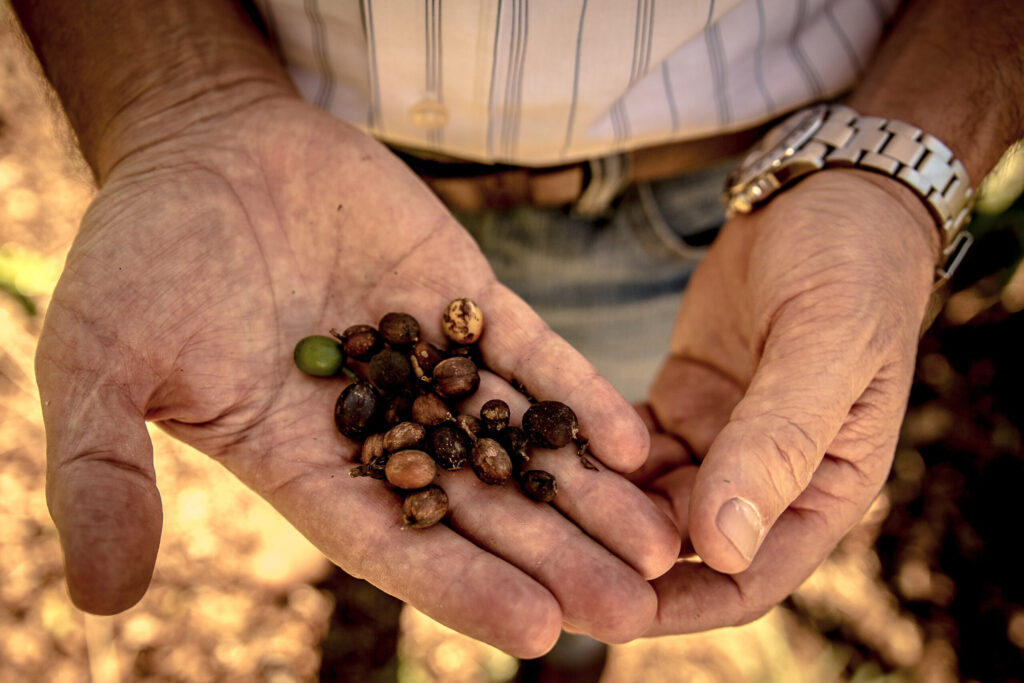Climate change is swiftly turning coffee, a staple for many, into an expensive indulgence. Coffee prices have climbed to their highest in nearly half a century, as extreme weather conditions have left global coffee producers reeling.
Brazil and Vietnam, the leading coffee producers worldwide, have experienced prolonged droughts over the past year. These conditions, exacerbated by the El Niño weather pattern and global warming, have significantly impacted coffee crop yields, with potential repercussions for the coming year’s coffee supply.
Studies indicate that future coffee production is at risk. By 2050, increasing temperatures are expected to reduce suitable coffee-growing areas by 50%, threatening a vital income source for farmers in developing countries.
As a result, consumers might face even steeper coffee prices in the future. Coffee companies are exploring various strategies to handle climate-induced challenges, such as diversifying their sources or shifting away from coffee cultivation.
Intensified Droughts: In September, Brazil’s National Center for Monitoring and Early Warning of Natural Disasters reported that the country was experiencing its “most intense and widespread drought in history,” affecting nearly 60% of the region. This drought is partly due to rampant deforestation in Brazil, which has altered rainfall patterns, as noted by The Washington Post.
As detailed in my November article, droughts often lead to wildfires. Brazil has witnessed some of its worst wildfires in decades, primarily due to the “slash-and-burn” farming technique. This practice, along with dry soil conditions, has severely affected sugarcane, fruit, and coffee production. Similarly, coffee growers in Vietnam have suffered from droughts and the impact of Typhoon Yagi.
Although October brought rain showers to Brazil, resulting in abundant coffee flowering, farmers remain concerned about the recovery of their trees, as reported by Reuters. Many small-scale coffee farms in both countries are facing difficulties.
Elizabeth Shapiro-Garza, associate professor at Duke University, remarked to The Canadian Press, “Coffee is the canary in the coal mine for climate change and its effect on agriculture.”
Coffee arabica, the most common species used in consumer coffee, is especially susceptible to climate variations. These plants flourish in tropical climates between 64 and 70 degrees Fahrenheit. A 2022 study suggested that climate change could push regions like Eastern Brazil and Southeast Asia out of this climatic zone. Some areas in East Africa, Asia, and South America may benefit, but they currently lack the infrastructure for extensive coffee cultivation without increasing deforestation, according to research.
Market Implications: The price of arabica beans has jumped by nearly 70% on the New York Stock Exchange this year, with future contracts reaching $3.35 per pound last week.
This trend is impacting the industry significantly, with consumers likely to feel the effects. Nestle SA, a leading coffee producer, announced plans to raise prices and reduce packaging sizes. Business leaders are grappling with how to satisfy growing demand amid shrinking supplies.
Andrea Illy, CEO of illycaffè, stated, “There is an urgency now, because this year proves that the impact of climate change cannot be underestimated. It is starting to change the market itself.”
Some companies are investing in new regions to expand coffee production beyond South America. Starbucks, responsible for 3% of global coffee purchases, announced it is acquiring two farms in Guatemala and Costa Rica. Lavazza has invested over $1.5 million in reviving Cuba’s coffee industry.
Innovative businesses are emerging to climate-proof or even replace coffee beans. In April, Grist and Slate explored beanless alternatives like chickpea and barley brews, for those interested.
Original Story at insideclimatenews.org
